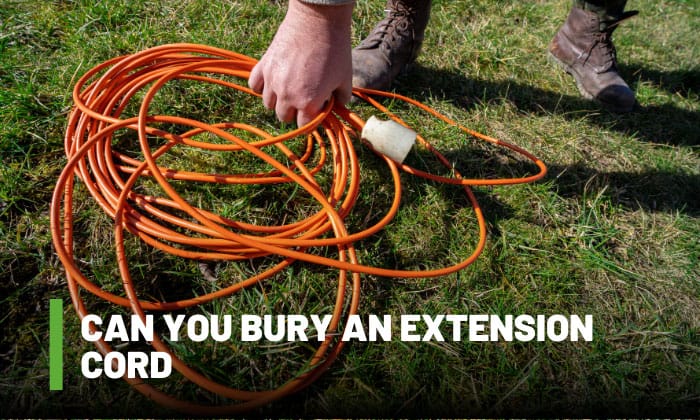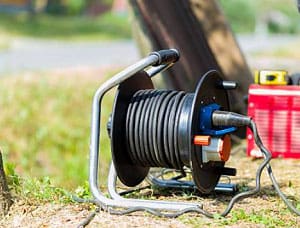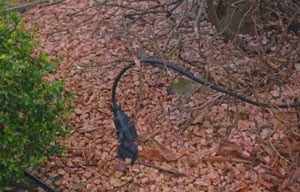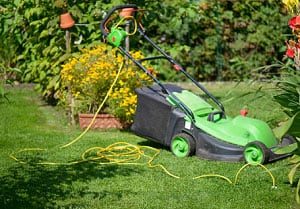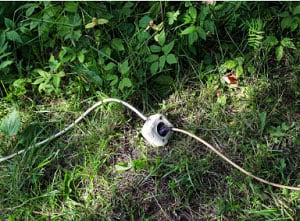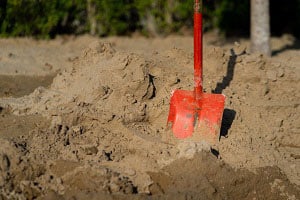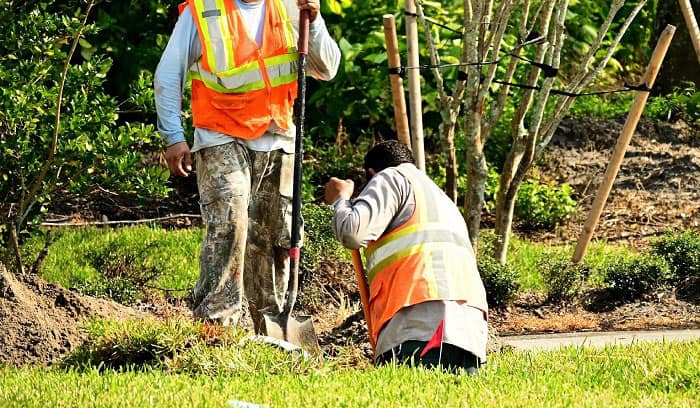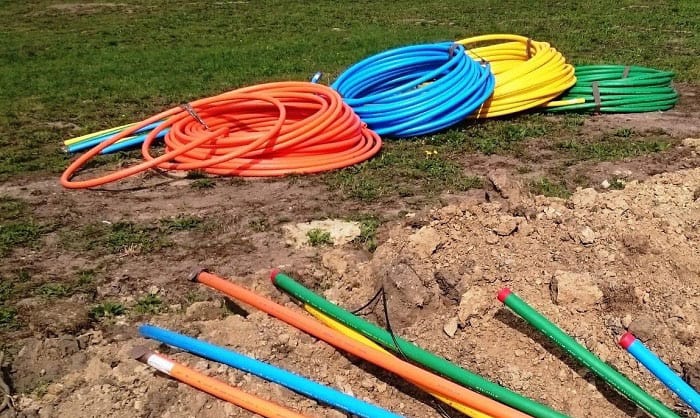When you need to run an extension cord outside, you may wonder, “Can you bury an extension cord to make the electrical connection safe?”
In general, you are not allowed to bury even outdoor-rated extension cables. There is a specific type of cord rated for burial use. Moreover, there are considerations to be made for this application, which I will go over below.
Table of Contents
Can You Bury Extension Cord Outside Your House?
One way of hiding extension cords outside is by burying them underground. This will help eliminate tripping hazards, especially in high-traffic areas. However, not all types of extension cords are allowed in burial applications.
A direct burial UF extension cord is the only type you can put underground. Even then, it is good to consider certain safety precautions. Here’s a rundown of what they are.
1. Possible Situation
We frequently need to conceal cables during special events when a large number of guests visit our home. Before you bury extension cord in ground, you should first consider the best alternative.
Is it truly necessary for your extension cable to pass through high-traffic areas? Isn’t it enough to just run it through the wall and hide it behind your plants? If you are already considering these options, you may want to learn more about other safety precautions.
2. Usage Duration
First, consider how long you need to use your underground extension cord, since it should be reserved for temporary applications only. If you need it for longer periods of time, think about constructing a permanent circuit.
3. Current Loads Needed
Another safety factor you need to consider is the load requirements of your application. You should be aware that if you use a long outdoor extension cord, it will be subject to voltage drops. In this case, your lights or electronics may receive insufficient power, since the current won’t be at full strength when it reaches them.
As a result, you should keep extension cords no longer than 50 ft or 100 ft to avoid higher voltage drops.
4. Power Source
It is always smart to use a grounded extension cord for outdoor applications. These are the cords that have three prongs or a ground prong. Also, it is necessary to connect them to the nearest GFCI outlet for additional safety.
5. Ensure No Existing Connection will Be Hit
Lastly, before digging a trench for your direct burial extension cord, ensure that no existing connection can be damaged. Check if there is an active line, such as water, gas, or telephone lines, along the way. If everything is clear, you may now start burying your extension cord.
How to Bury an Extension Cord?
Burying a temporary electrical connection is easy but requires some physical strength. Also, you need to use trench tools, such as a shovel. Now, if you are ready to bury your extension cord, here is the best way to do it.
- Begin by planning the path from the GFCI outlet to your desired destination. After that, you can begin digging a trench. A temporary electrical connection does not need to be very deep or wide. For this application, a 4-inch width and 8-inch depth is enough.
- Since you are utilizing a direct burial rated extension cord for a temporary purpose only, you can put it directly into the trench. It does not need to be in PVC, since it is robust enough for this application. However, using an extension cord conduit is also not bad, especially if the terrain is rocky.
- Place the cable down with the soil you removed from the trench, and you’re finished. You can now test your electrical connection.
Frequently Asked Questions
Is it Legal to Bury an Extension Cord Outside?
Burying extension cord is not allowed and is against all standards. Its insulation can easily wear out and pose an electrical hazard over time.
If you need to bury an electrical connection legally, use a cord that is rated for that purpose. Then, you can follow the steps above for proper installation.
Can You Bury Any Type of Extension Cord Underground?
Use a buriable extension cord only and no other type; the cable’s package will list its usage clearly for you to see. Do not bury regular outdoor-rated cords, as they do not fare well beneath the soil.
Is it Safe to Leave Extension Cords Plugged in Outside?
Even though an outdoor-rated extension is robust, leaving it outside while attached to a wall outlet is not recommended. This is not advised, even if nothing is connected to it, since the cable will help to deal with the weather and other external elements.
At the same time, if something is attached to the wire and it must run continually, it is best to plug it directly into a grounded outlet rather than use a permanent outdoor extension cord. This way, you may leave your device running without worrying about electrical hazards.
What are the Alternatives for Burying Extension Cables?
There are many alternatives for burying electrical cords. You can use covers and plants to hide the cords safely. You can also take advantage of the outside walls, downspout, and trellises to hang cables above-ground.
Also, one of the best options is to use cordless equipment such as power tools that contain batteries or lighting that is powered by solar energy.
Conclusion
Knowing that there is a cord rated for burial application will give you an answer to your question, “can you bury an extension cord?”
On the other hand, even if you are allowed to hide a specific cable underground, it is still not a great idea, since you may not be aware of water pipes and other utility lines in the area.
Always remember to seek other options first, and don’t forget to consult a professional before considering this application.

I am Edwin Jones, in charge of designing content for Galvinpower. I aspire to use my experiences in marketing to create reliable and necessary information to help our readers. It has been fun to work with Andrew and apply his incredible knowledge to our content.

